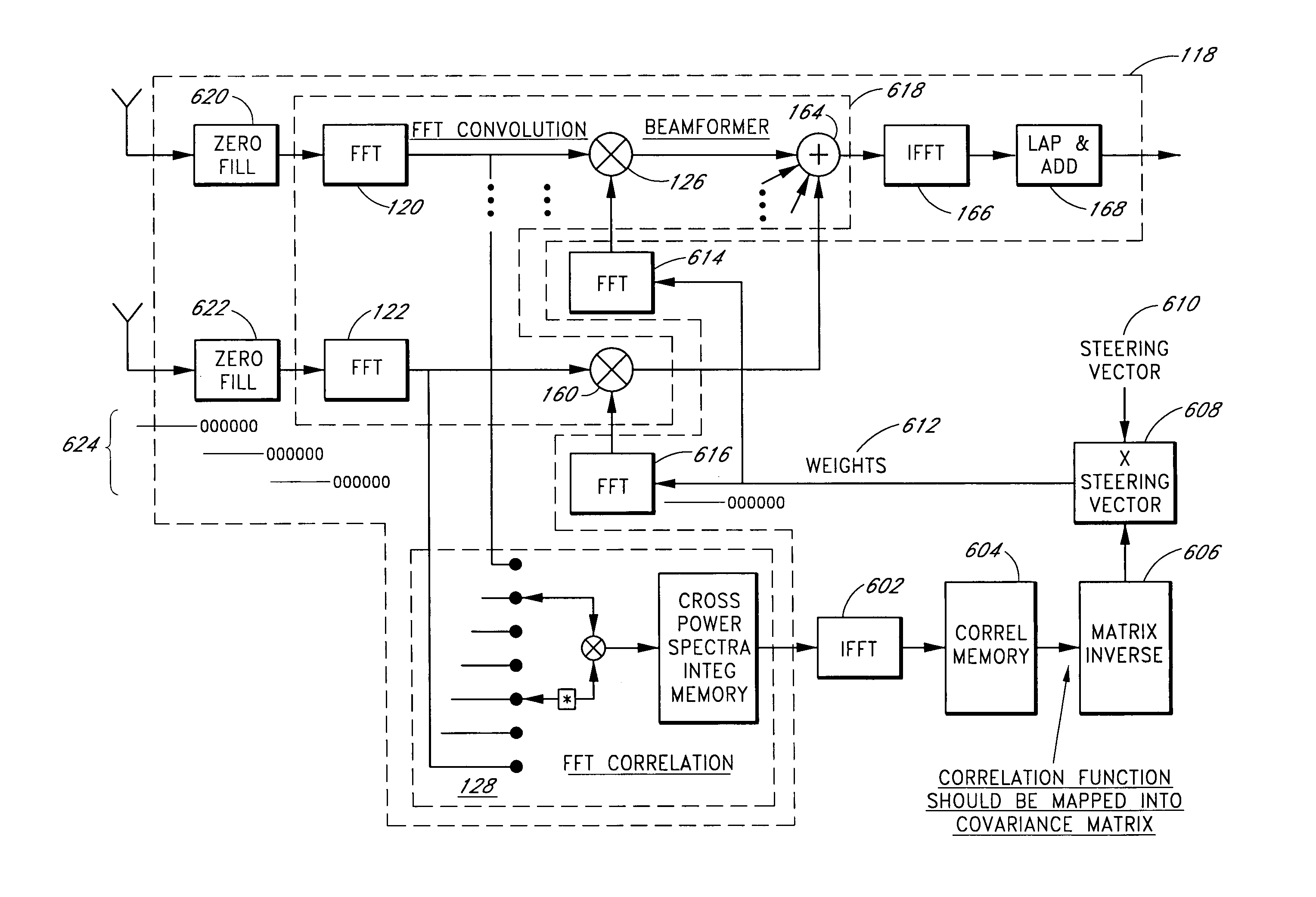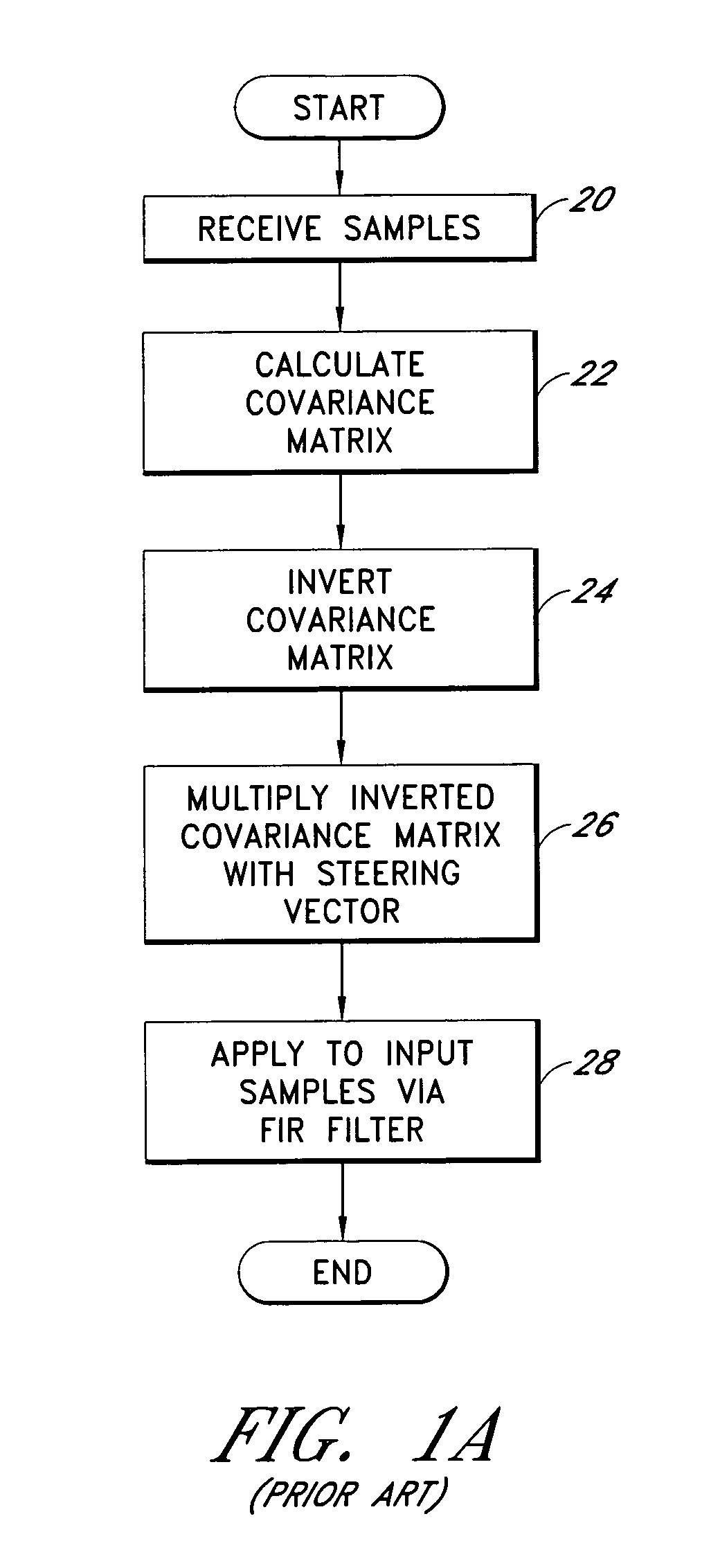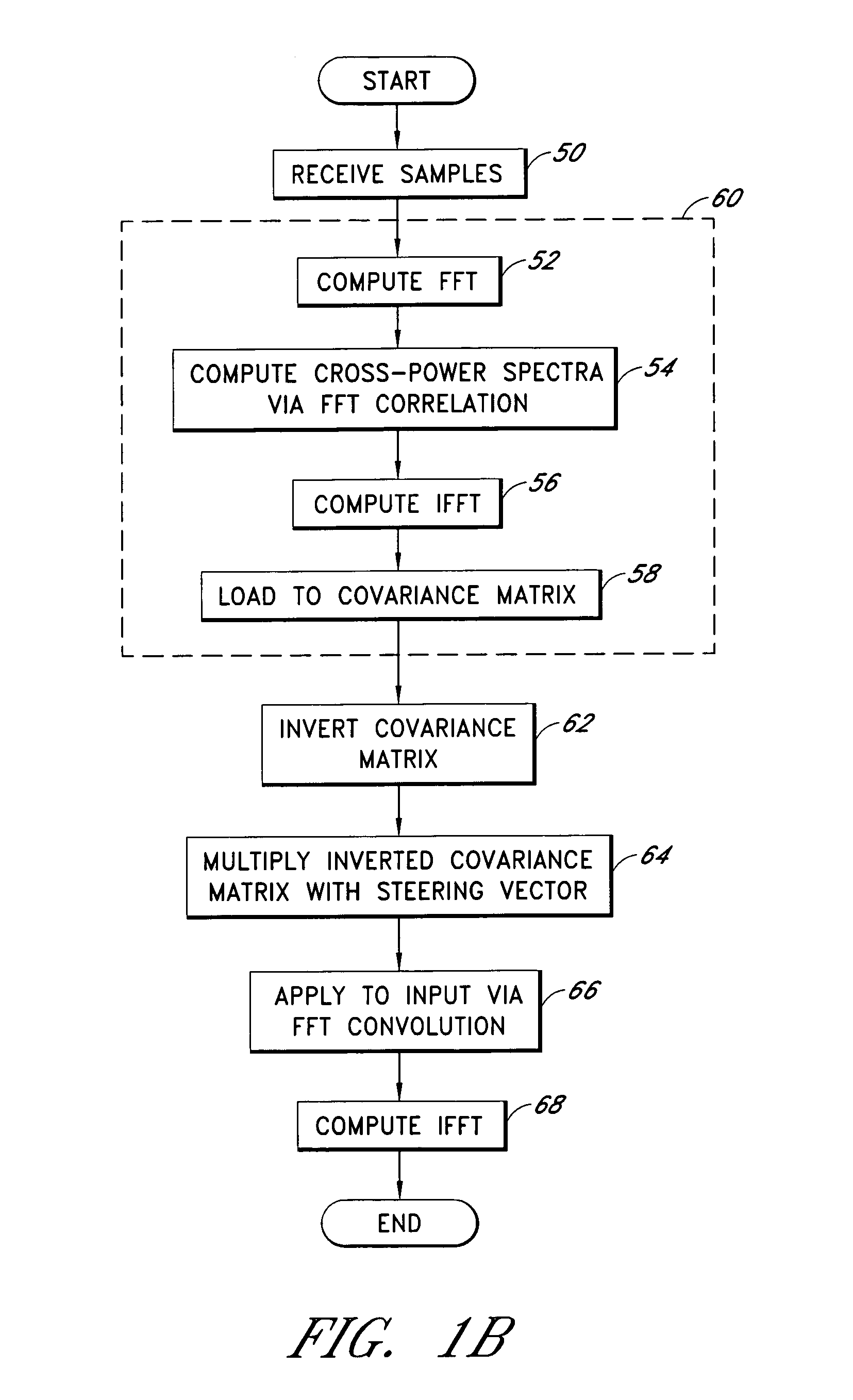Efficient space-time adaptive processing (STAP) filter for global positioning system (GPS) receivers
a global positioning system and adaptive processing technology, applied in the field of gps receivers, can solve the problems of low operating power and relative low cost, and achieve the effect of enhancing tracking
- Summary
- Abstract
- Description
- Claims
- Application Information
AI Technical Summary
Benefits of technology
Problems solved by technology
Method used
Image
Examples
Embodiment Construction
[0038]Although this invention will be described in terms of certain preferred embodiments, other embodiments that are apparent to those of ordinary skill in the art, including embodiments that do not provide all of the benefits and features set forth herein, are also within the scope of this invention. Accordingly, the scope of the invention is defined only by reference to the appended claims.
[0039]Space-time adaptive processing (STAP) is a powerful two-dimensional filtering technique that adaptively calculates a weight vector in response to received signals. Disadvantageously, the weight vector is difficult to compute using conventional techniques. Embodiments advantageously compute the weight vector with efficiency, thereby permitting STAP filtering techniques to be applied in a GPS receiver.
[0040]FIG. 1A generally illustrates conventional space-time adaptive processing. In a first step 20, the input samples are received. A covariance matrix is calculated in a second step 22. The ...
PUM
 Login to View More
Login to View More Abstract
Description
Claims
Application Information
 Login to View More
Login to View More - R&D
- Intellectual Property
- Life Sciences
- Materials
- Tech Scout
- Unparalleled Data Quality
- Higher Quality Content
- 60% Fewer Hallucinations
Browse by: Latest US Patents, China's latest patents, Technical Efficacy Thesaurus, Application Domain, Technology Topic, Popular Technical Reports.
© 2025 PatSnap. All rights reserved.Legal|Privacy policy|Modern Slavery Act Transparency Statement|Sitemap|About US| Contact US: help@patsnap.com



